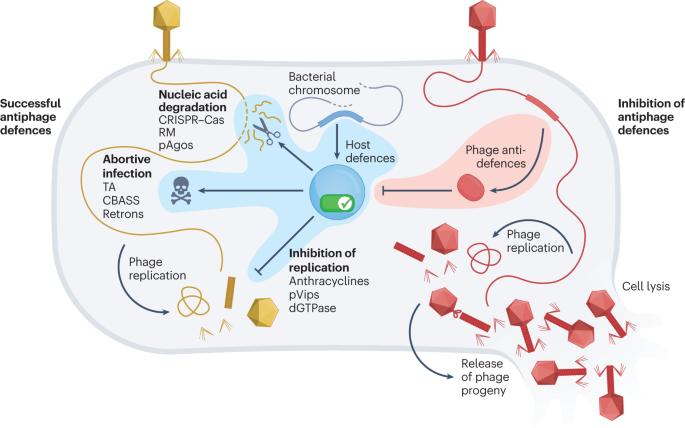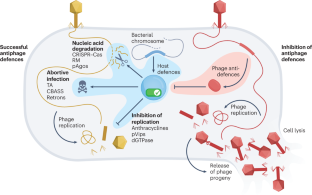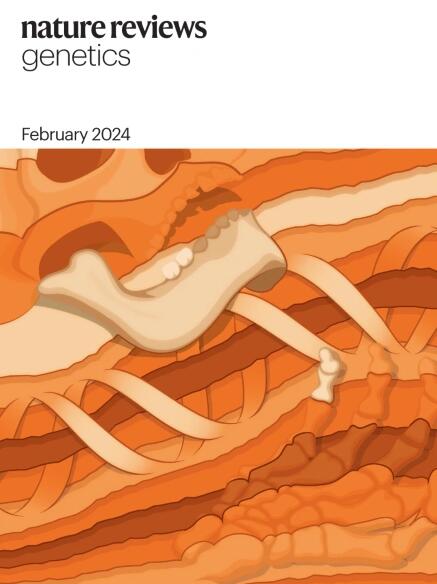Inhibitors of bacterial immune systems: discovery, mechanisms and applications
IF 39.1
1区 生物学
Q1 GENETICS & HEREDITY
引用次数: 0
Abstract
To contend with the diversity and ubiquity of bacteriophages and other mobile genetic elements, bacteria have developed an arsenal of immune defence mechanisms. Bacterial defences include CRISPR–Cas, restriction–modification and a growing list of mechanistically diverse systems, which constitute the bacterial ‘immune system’. As a response, bacteriophages and mobile genetic elements have evolved direct and indirect mechanisms to circumvent or block bacterial defence pathways and ensure successful infection. Recent advances in methodological and computational approaches, as well as the increasing availability of genome sequences, have boosted the discovery of direct inhibitors of bacterial defence systems. In this Review, we discuss methods for the discovery of direct inhibitors, their diverse mechanisms of action and perspectives on their emerging applications in biotechnology and beyond. To successfully invade bacteria, bacteriophages and other mobile genetic elements must overcome numerous types of bacterial defence systems. Here, the authors review the discovery and mechanisms of direct inhibitors of bacterial defence systems, as well as their applications in biotechnology.


细菌免疫系统抑制剂:发现、机制和应用。
为了应对噬菌体和其他移动遗传因子的多样性和无处不在性,细菌开发出了一套免疫防御机制。细菌防御机制包括 CRISPR-Cas、限制性修饰和越来越多的机制多样的系统,它们构成了细菌的 "免疫系统"。作为回应,噬菌体和移动遗传因子进化出了直接和间接机制,以规避或阻断细菌防御途径,确保成功感染。近来方法学和计算方法的进步以及基因组序列的不断增加,促进了细菌防御系统直接抑制剂的发现。在本综述中,我们将讨论发现直接抑制剂的方法、它们的各种作用机制以及它们在生物技术及其他领域的新兴应用前景。
本文章由计算机程序翻译,如有差异,请以英文原文为准。
求助全文
约1分钟内获得全文
求助全文
来源期刊

Nature Reviews Genetics
生物-遗传学
CiteScore
57.40
自引率
0.50%
发文量
113
审稿时长
6-12 weeks
期刊介绍:
At Nature Reviews Genetics, our goal is to be the leading source of reviews and commentaries for the scientific communities we serve. We are dedicated to publishing authoritative articles that are easily accessible to our readers. We believe in enhancing our articles with clear and understandable figures, tables, and other display items. Our aim is to provide an unparalleled service to authors, referees, and readers, and we are committed to maximizing the usefulness and impact of each article we publish.
Within our journal, we publish a range of content including Research Highlights, Comments, Reviews, and Perspectives that are relevant to geneticists and genomicists. With our broad scope, we ensure that the articles we publish reach the widest possible audience.
As part of the Nature Reviews portfolio of journals, we strive to uphold the high standards and reputation associated with this esteemed collection of publications.
 求助内容:
求助内容: 应助结果提醒方式:
应助结果提醒方式:


